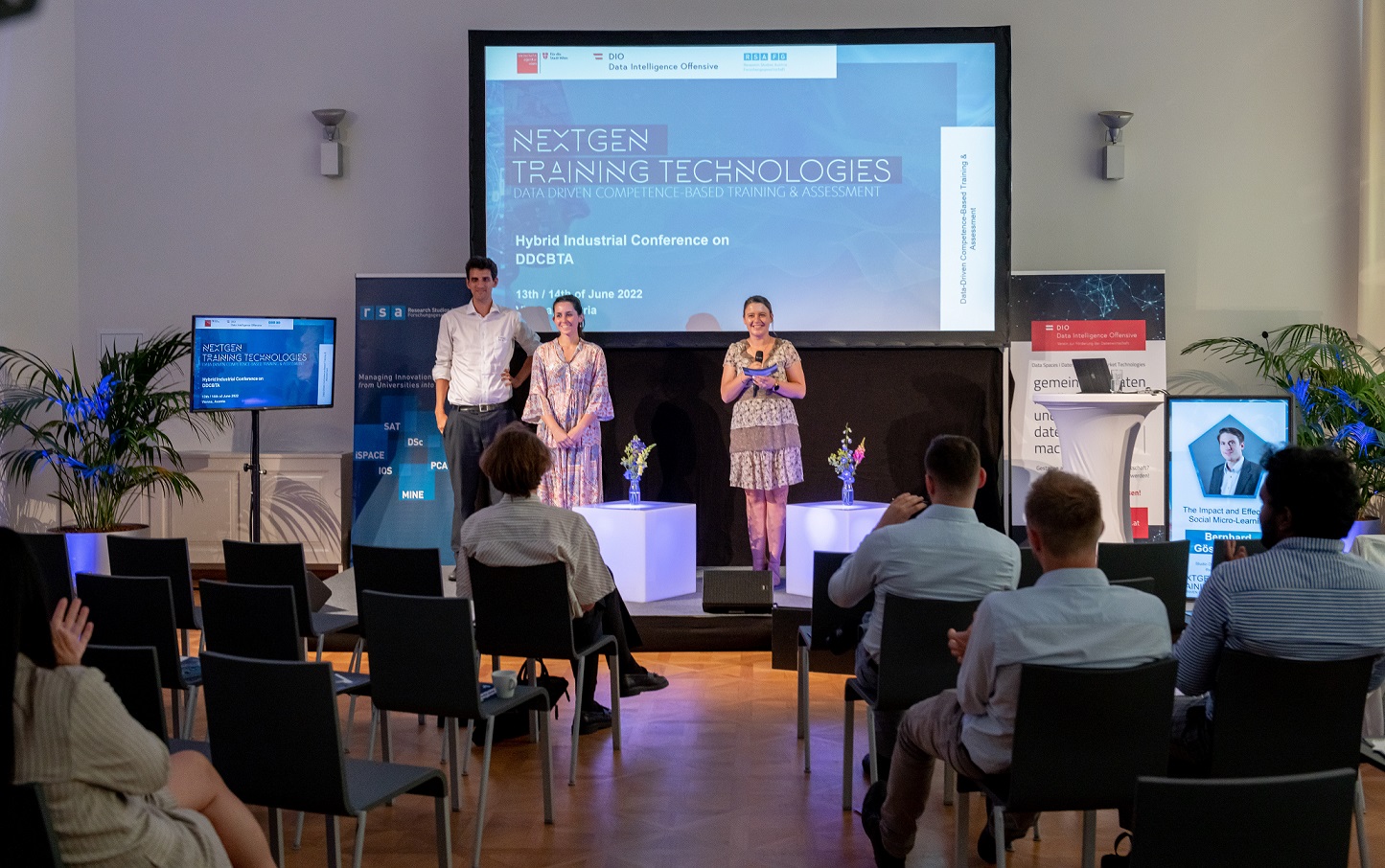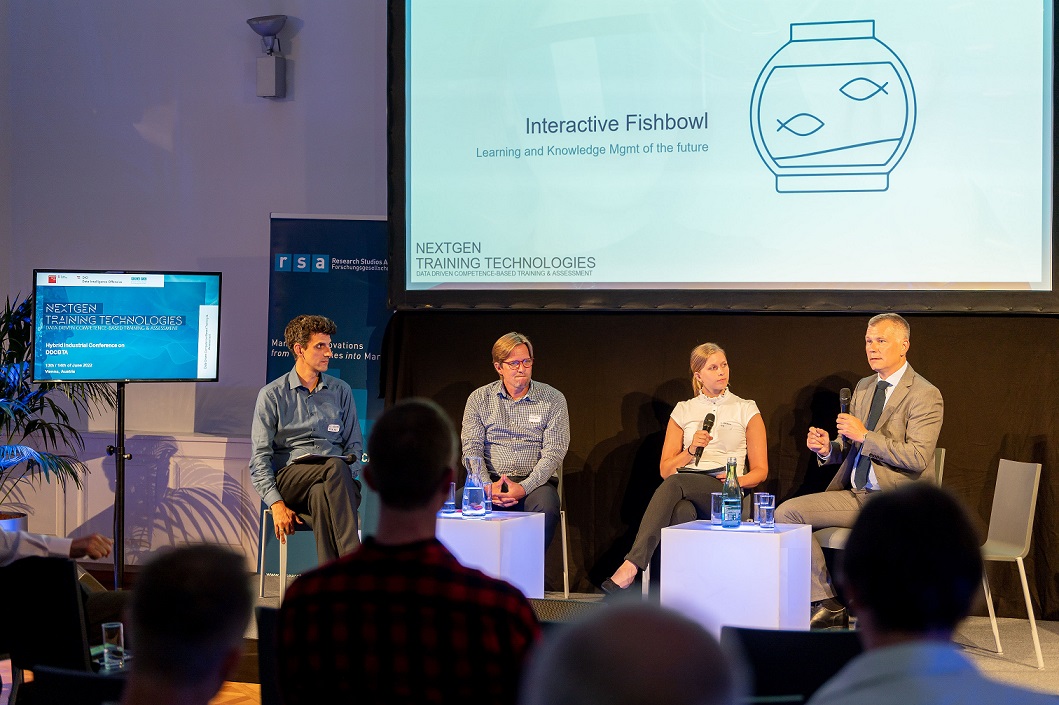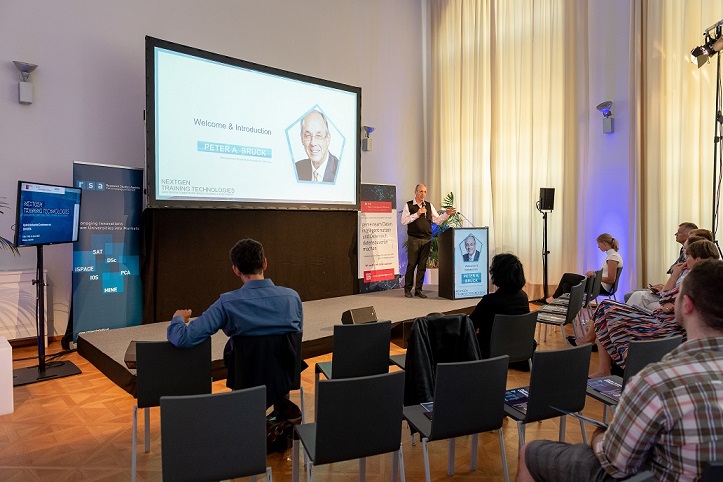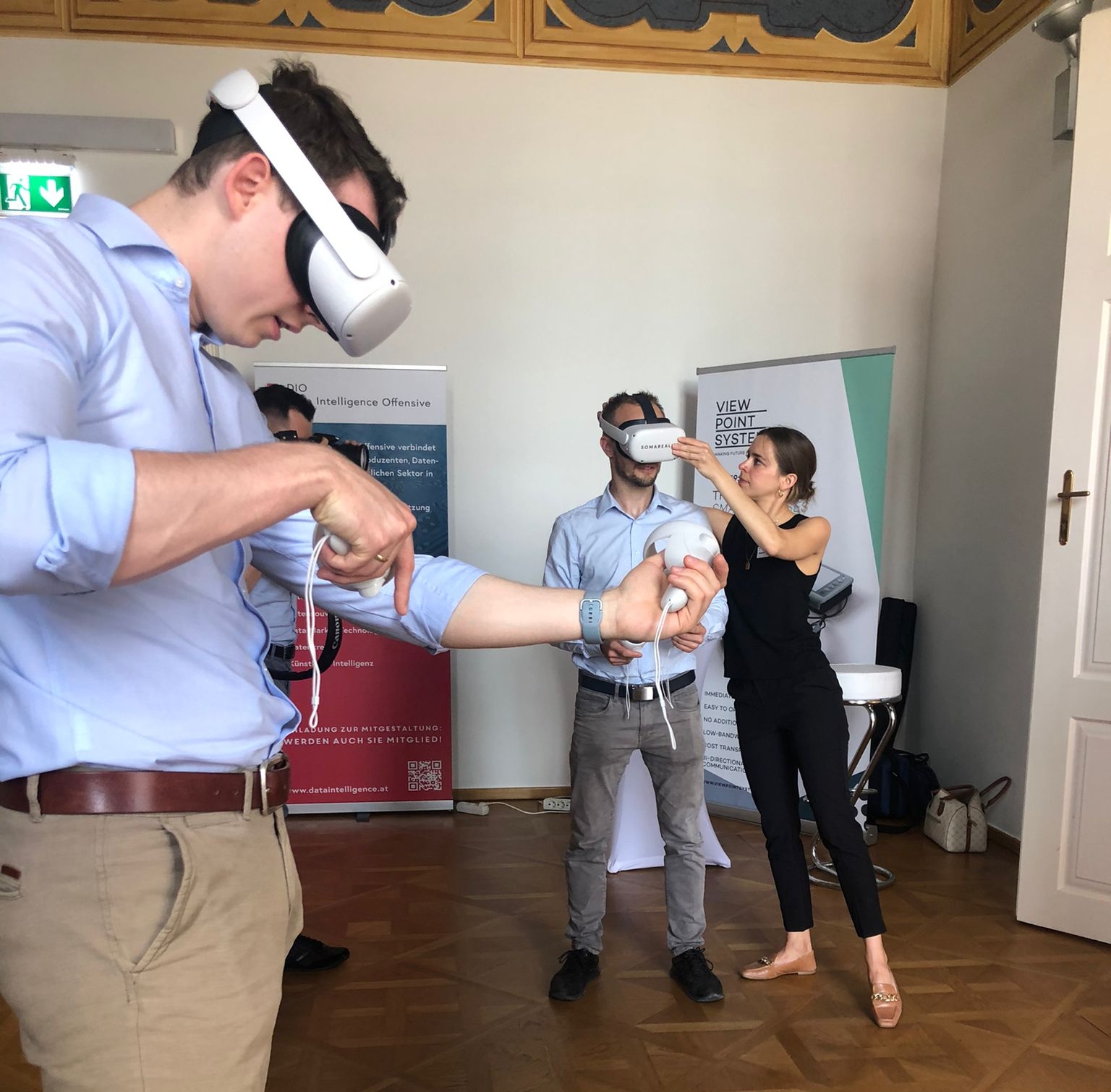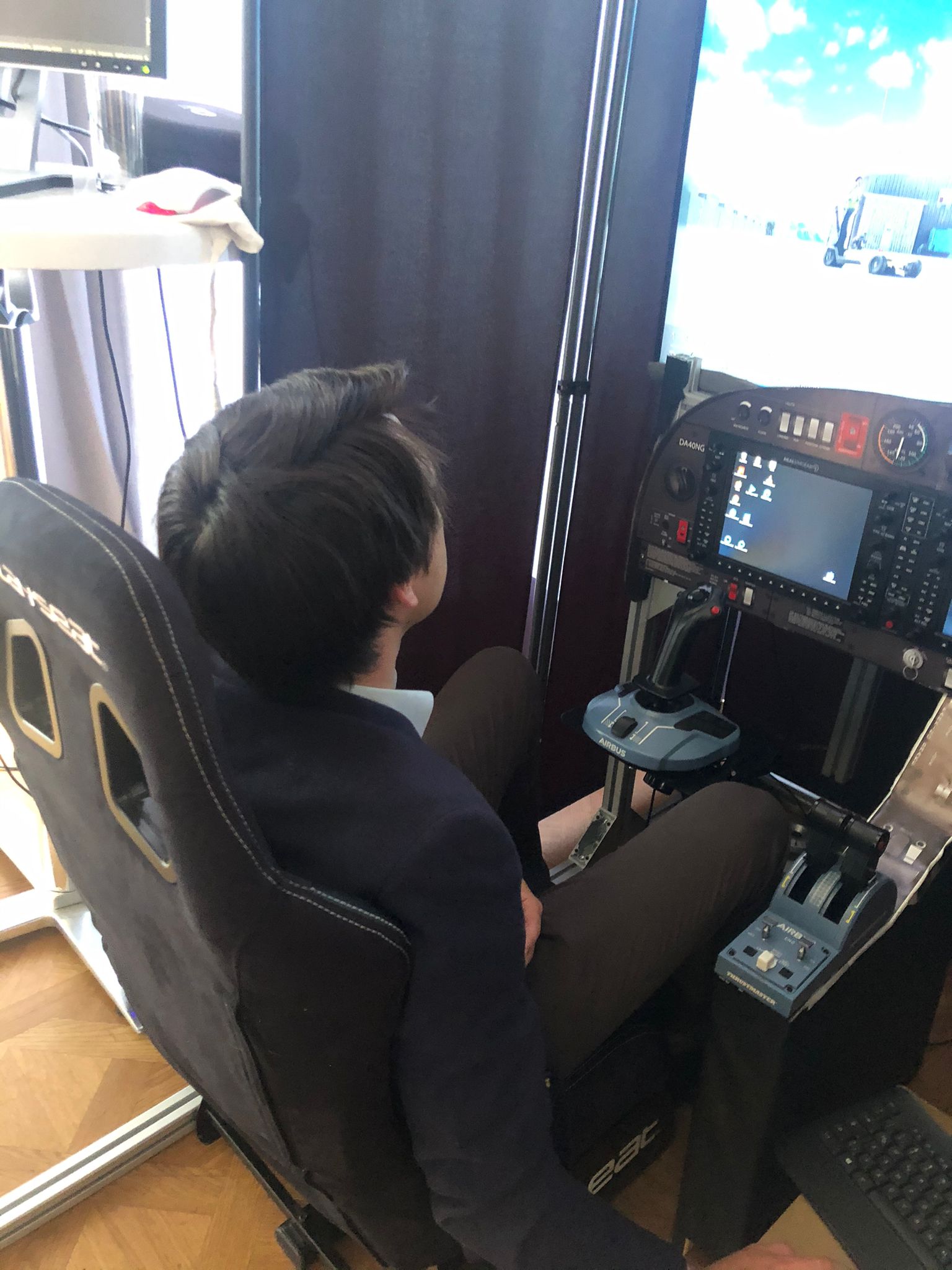To support the process to create the workforce of the future, DIO and RSA FG hosted the hybrid event “NextGen Training Technologies: Data Driven Competence-Based Training & Assessment” in the creative heart of Vienna on the 13th & 14th of July.
This event aimed to connect technology providers, research and users and, with the help of individualized, adaptive and future-oriented solutions such as (i) competence-based training & assessment, (ii) e-learning and (iii) microlearning, ensures further education and training in pioneering companies.
With more than 90 participants, 17 Speakers and a variety of keynotes and networking-sessions the event initiated an encompassing network of stakeholders, pioneers and innovation leaders, to shape the future of learning and training processes in Austria and Europe.
NEXTGEN – Recap
The two events were planned on the following main topics: (i) Cockpit Environments, (ii) Distributed Work Environments and (iii) Teamwork & Knowledge Transfer. The division of the content into three thematic units aimed to facilitate cross-application, interdisciplinary discussion sessions that are related in methodology (applicable sensing, analytics, modeling).
13th June: DDCBTA in Cockpit Environments
The opening speech of the event was held by Eva Czernohorszky, Director of Technology Services at Vienna Business Agency. She reminded us that Vienna is on its way to becoming an innovation leader & that talent is crucial in this process. That is why the Vienna Business Agency not only supports innovation and investment projects of Viennese companies, but also projects that aim to empower young people to shape the future together.
Christiane Spiel, University of Vienna, made us think about the current education system, curricula and training from the student/learner perspective and raised the question: What should (young) people be capable of in the world of tomorrow? One important take-away from her keynote is that of the key ingredients for self-regulated learning and learning motivation, which are: competence, autonomy and social relatedness.
With a keynote on the history of CBTA in aviation, Christian Norden, Norden.Aero, introduced us to the concept of Competence-Based Training & Assessment in Cockpit Environments. Christian Norden explained why frameworks for competency-based training and assessment, which consider human error, stress management, situation awareness, workload management, decision making, communication, leadership, team behavior, etc. were developed.
Michael Mayrhofer, CEO RotorSky, later discussed the current developments in pilot training.
“Competency Based Training and Assessment (CBTA) is more than a trend in pilot training – it is a paradigm shift. During the past decades pilots were trained and checked to accomplish specific tasks related to their day-to-day challenges in the flight deck rather than being developed to a resilient pilot, who can handle any desired situation best.”
His keynote mainly focused on the new challenges the training device manufacturers are facing because of CBTA and how they probably tackle this.
Later, Benedikt Gollan, Operative Head of RSA PCA, explained that based on affordable mobile eye trackers the detailed monitoring of student performance in terms of 3D visual attention distribution in the cockpit, gaze behavior patterns and associated cognitive load and perception is possible. Technologies like this might open the door for training which allow individual adaptation of training procedures and schedules, to optimally support each pilot.
Mindset Technologies is a startup based in Switzerland and Austria with the purpose to predict human attention and behavior to improve performance and raise safety. Christian Kusmitsch, CEO Mindset Technologies, demonstrated his model within the domain of psychophysiology and relations to cognition, volition, and behavior.
Lucas Noldus, CEO Noldus Information Technology, showed us how sensors and data analysis allow the measurement of actual task performance and are available for a wide range of behavioral and physiological measures, from eye movement and facial expression to skin conductance and brain activity. Modern software platforms can take care of multimodal data integration and synchronization as well as real-time integration, offering immediate feedback to the trainer and thus optimally supporting training and assessment.
In this keynote, Alois Ferscha, JKU Linz, presented intelligent industrial assistance systems using reference systems from work in wearable computing:
“Radical miniaturization of microelectronics, the advance of global networking, and the further development of artificial intelligence methods have led to completely new industrially and economically relevant application scenarios for embedded intelligence in the last two decades. Central to this is to build an intelligence into products that are autonomous, real-time capable, trustworthy, distributed, collective and embedded. The next generation of intelligence-enhanced products will foreseeably have human-like cognitive capabilities. The consequence is no less than ‘thinking’ products and industrial technologies.”
Part 2 will follow soon.
Pictures: © killer.media




